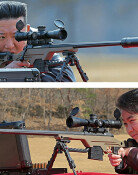Biz Trouble in China
Employees of Sungwoo Hightech, the China branch of a Korean auto parts company, went on strike at the end of last month. Because of this, a Hyundai Motor plant in Beijing that receives parts from Sungwoo such as bumpers had to stop operations. Other parts suppliers to Hyundai had no choice but to halt operations as well. The carmaker hurriedly dispatched a labor relations expert and Sungwoo agreed to a wage hike of 15 percent. Operations were resumed two days after the strike ended. This testifies to the difficulty in labor management experienced by Korean companies in China. The days of Chinese workers who are obedient despite low wages are gone.
The plant of Japanese automaker Honda in Foshan, China, announced Monday a wage increase of 24 percent. Workers at the factory, who went on strike May 17, had demanded a raise of 67 to 100 percent. Clashes occurred between workers who urged returning to work and those who wanted to continue the strike. Some say the incident could trigger rising wages in the Chinese auto industry. The Taiwanese company Foxconn decided to raise wages 30 percent for workers at its Shenzhen factory after 10 employees committed suicide over the past four months. China is no longer a cheap labor paradise for foreign companies.
Among changes in Chinas social and economic policies, those on foreign companies and labor have changed the most. Korean companies operating in China have had difficulty adapting to continuous policy changes for foreign companies. Worse, they suffer from a lack of skilled workers, rising production costs stemming from the strong yuan, and oversupply.
The Hu Jintao administration is reshaping China`s labor system to lessen social conflict and developmental imbalance, two adverse effects of Beijing`s growth-oriented policy which has lasted more than 20 years. A case in point is a labor contract law that took effect in 2008. Chinese workers who actively participated in strikes were born before the 1980s, and are well aware of what is happening in the world because they use the Internet and mobile phones. Their awareness of human rights has also risen. Korean companies that set up shop in China to avoid labor strife are unhappy due to rising risks in labor management.
Editorial Writer Hong Kwon-hee (konihong@donga.com)







